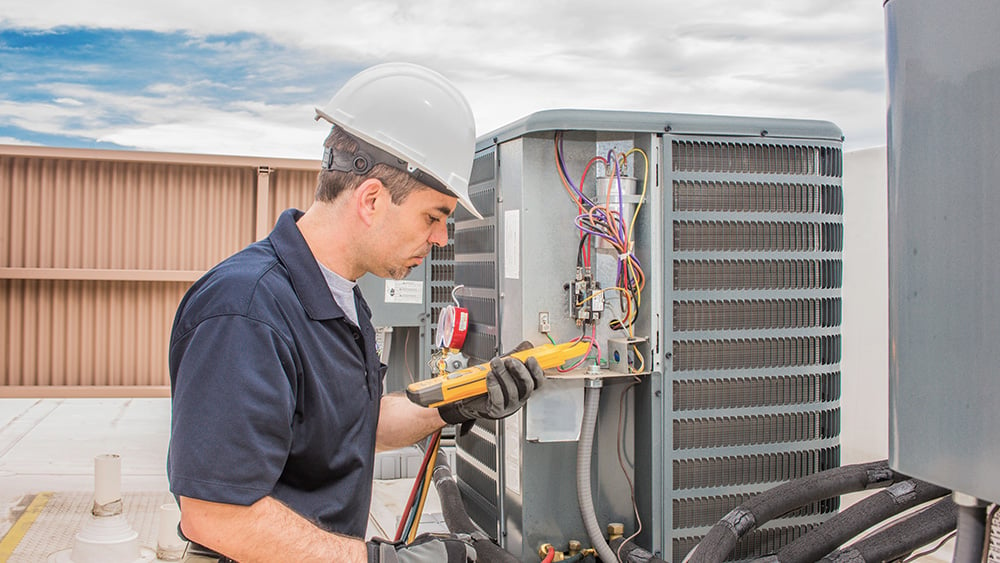
Warner Service understands that we are all busy with the the fast-paced American lifestyle. Amidst the hustle and bustle, it is easy to see why air conditioner maintenance is easily forgotten. Sometimes just changing the air filter can be put off for a year and not even thought about until your HVAC system stops functioning correctly. This is where Warner Service comes in. We make your air conditioner maintenance our duty, and we cover much more than just the air filter.
Here's a run down of what our Warner Service technicians will do during your spring HVAC maintenance visit:
INSIDE THE HOME
- Check the Settings on Your Thermostat. First, your tech will want to make sure your settings are keeping you comfortable and saving you money at the same time. If you ask the tech, they'll show you the best way to set up your system and program for efficiently.
- Start It Up (after all systems have been checked and serviced). Your tech will turn everything off and start it all up again to inspect the controls of your system. This will make sure everything is in working order and will ensure the comfort and safety or your family. The air conditioning tech will also give you an update on what was serviced and what may need some attention today or in the future. The tech will finish off by inputting a record of services rendered and your updated HVAC system specs into our customer records.
BLOWER & EVAPORATOR COIL
- Check and Replace the Air Filter if Needed. It’s such a simple thing, but a dirty filter is often just as bad as something being broken or bogged down. They need to be changed, which your tech will gladly do.
- Inspect the Condensate Drain. Your unit can cause water damage if it’s plugged up. This can also cause mildew and mold to grow and can also affect the humidity levels in your home. Your tech will clean out any clogging debris.
- Add a Condensation Tablet to the Condensate Drain. This little blue tablet helps in the elimination of fungi build up in the drain.
- Clean Blower Motor: Housing and Compartment.
- Check Bearings. This is important to check because they support the motor shaft and blower wheel, and can make an awful sound if left unchecked.
- Inspect the Controls.
- Temperature Check. Also called the “refrigerant levels.” Too hot or too cold are equally bad and both make your unit work harder for the same comfort outcome. Not to mention the extra work shortens the life of your unit. Your tech will adjust this level if necessary.
- Test Capacitor. The capacitor helps start up the motor of your unit and keeps it running efficiently.
- Check for Rattling and Condensate Leak
CONDENSER COIL & FAN
- Clean the Coils of Your Cooling Unit. Dirty coils are a bad thing because not only do they make it harder for your unit to cool your home, they also make your system run longer.
- Test the Capacitor and Controls on the Outside Unit.
- Clean out Debris. It may seem like something simple, but just keeping the debris out of your unit could play a big part in helping it run smoothly.
- Check for Signs of Refrigerant Leaks.
- Tighten Electrical Connectors. On top of making sure nothing falls off, our techs measure the voltage levels of your unit. If your system is older and having a hard time with voltage fluctuations, your tech may suggest a hard start capacitor, which just gives your compressor an extra kick of voltage on startup.
- Temperature Check.
CONTACT WARNER SERVICE
The HVAC system tests listed above require special equipment and training that Warner Service technicians specialize in. Our team of experts will ensure that your spring maintenance is done to the highest standard.
Contact us to schedule your spring maintenance appointment and ensure that you are cool and comfortable before that Maryland heat arrives.


